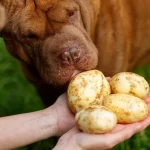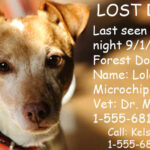How To Train Food Aggressive Dog
Training a Food Aggressive Dog: A Guide to Success
Dogs are man’s best friend, but sometimes they can exhibit aggressive behavior, especially when it comes to food. Food aggression is a common problem among dogs, and if not handled properly, can lead to serious consequences. As an owner of a food aggressive dog, it is important to understand why your dog is behaving this way and what you can do about it.
In this article, we will discuss the causes of food aggression in dogs and provide you with effective methods for training your food aggressive dog. We will also provide tips on how to prevent food aggression from occurring in the first place.
What Causes Food Aggression in Dogs?
Food aggression in dogs can be caused by several factors, including genetics, lack of socialization, and previous negative experiences. Dogs that were not properly socialized as puppies may develop food aggression because they were never exposed to other dogs or people during meal times.
Some breeds are more prone to food aggression than others. For example, breeds such as Pit Bulls and Rottweilers are known for their strong guarding instincts, which can manifest as food aggression.
Previous negative experiences can also contribute to food aggression. If a dog has been deprived of food or has had their meals taken away from them in the past, they may become defensive around their food bowl.
Effective Methods for Training a Food Aggressive Dog
1. Consult with a Professional Trainer
If your dog is exhibiting severe food aggression, it is recommended that you consult with a professional trainer who specializes in working with aggressive dogs. A professional trainer will be able to assess your dog’s behavior and provide you with personalized guidance on how to address their specific issues.
2. Establish Yourself as the Leader
Dogs are pack animals and need a strong leader to follow. It is important that you establish yourself as the leader of your pack by setting rules and boundaries for your dog to follow. This can be achieved through consistent training and positive reinforcement.
3. Practice Positive Reinforcement
Positive reinforcement is a powerful tool for training dogs. Rewarding your dog for good behavior will encourage them to repeat that behavior in the future. When training a food aggressive dog, it is important to reward them for calm and non-aggressive behavior around their food bowl.
4. Gradually Increase Exposure to Other Dogs and People
If your dog is not properly socialized, it may be necessary to gradually increase their exposure to other dogs and people during meal times. This can be done by inviting friends or family over for dinner and allowing your dog to observe the behavior of other dogs and people during meal times.
5. Use Desensitization Techniques
Desensitization techniques involve exposing your dog to stimuli that trigger their aggression in a controlled environment. This can be done by slowly introducing your dog to their food bowl while someone else is in the room with them. Over time, you can gradually increase the amount of time that someone else is present while your dog eats.
Tips for Preventing Food Aggression
1. Socialize Your Dog Early On
Socializing your dog early on is crucial in preventing food aggression. Exposing your puppy to different people, animals, and environments during their critical socialization period (between 3-14 weeks) will help them become well-adjusted adults.
2. Feed Your Dog in a Quiet Location
Feeding your dog in a quiet location away from other pets or distractions can help prevent food aggression. It is also important to establish a consistent feeding routine so that your dog knows when to expect their meals.
3. Use Interactive Toys During Meal Times
Interactive toys such as puzzle feeders or treat balls can provide mental stimulation for your dog during meal times and prevent boredom-related aggression.
4. Do Not Punish Your Dog for Being Food Aggressive
Punishing your dog for being food aggressive can make the problem worse. Instead, focus on positive reinforcement and desensitization techniques to change their behavior over time.
Conclusion
Food aggression in dogs can be a serious problem if not addressed properly. By understanding the causes of food aggression and implementing effective training methods, you can help your dog overcome their aggressive behavior and become a well-adjusted member of your family. Remember to always consult with a professional trainer if your dog’s behavior is severe or if you need personalized guidance on how to train your dog.



